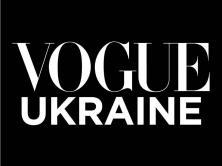iMediaEthics’ latest corrections roundup includes an NPR error about Cardi B, a New York Times number goof, a Hong Kong Free Press error abut the government, and a Wall Street Journal language mistake.
1.Cardi B and ‘Okurrr’
Rapper Cardi B wants to trademark her catchphrase Okurrr, but NPR erred in reporting on that. The July 10 correction:
“While the headline and introduction to this report make clear that rapper Cardi B has been told she can’t trademark a catchphrase, at one point we mistakenly say she has been denied a patent. The U.S. Patent and Trademark Office explains the difference between trademarks and patents here.”
2. Million, billion, what’s the difference?
The New York Times said a company was $50 million in debt when it was really $50 billion. The Times’ July 10 correction reads:
“An article on Wednesday about France Télécom executives facing “moral harassment” charges after a wave of worker suicides misstated France Télécom’s past financial performance. By 2005, the company was over $50 billion, not $50 million, in debt.”
3. CCTV wasn’t just put at government headquarters.
The Hong Kong Free Press published a July 8 retraction reading:
“Retraction: HKFP has retracted a story relating to the installation of CCTV cameras around gov’t headquarters. The cameras were installed previously, but workers performed maintenance or upgrades on Monday. HKFP is clarifying the work with the LCSD.”
4. What language is Rajah?
A July 1 Wall Street Journal correction reads:
“The word Rajah means “king” in Hindi. An Off Duty article Saturday about pet-friendly hotels incorrectly said that the name means king in Arabic.”






